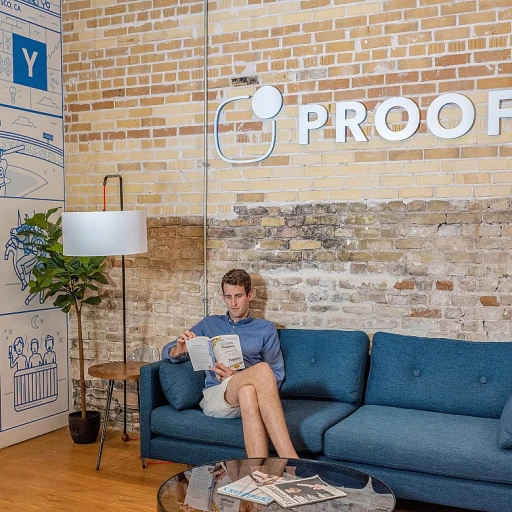
Understanding the Importance of Retail Collaboration
The Significance of Retail Synergy
The retail environment is evolving, and for New Zealand companies, forming strategic partnerships is crucial to stay competitive. Collaboration in the retail sector has become more than just a trend; it’s a necessity that molds brand performance and drives data-driven decisions. Retail collaboration encompasses the sharing of insights and resources to boost sales while achieving mutual benefits. By integrating tools like cloud platforms and real-time tracking, retail teams enhance monitoring capabilities and strengthen customer service efforts.
Understanding the dynamics of retail collaboration involves recognizing the essential role of joint data applications and management. In today's digital world, data is the backbone of informed decision-making, providing brands with actionable insights necessary for growth. Companies are leveraging technologies like work management and cloud security systems to facilitate effective communication and secure information sharing among team members.
As businesses navigate the challenges of maintaining vibrant partnerships, the integration of advanced technologies and efficient data management remains crucial. Retailers benefit from adaptable working methods and real-time feedback, which promote seamless collaboration and ultimately boost overall brand success. By embracing collaboration, New Zealand companies can proactively address hurdles and optimize their strategic plans, ensuring sustained performance in the retail sector. The continuous evolution in these partnerships highlights the transformative role of modern platforms, tools, and strategies, as further detailed in this insightful resource.
Challenges Faced by New Zealand Companies
Overcoming Challenges in Retail Collaboration in New Zealand
In New Zealand's dynamic retail environment, companies face numerous obstacles when attempting to forge successful partnerships. These challenges can hinder growth and impact brand performance, making it crucial for businesses to address them effectively. Here, we'll explore some of the most common hurdles faced by retail brands and how they can be mitigated. Firstly, data management often poses a significant challenge. Many companies struggle with handling vast amounts of data, which is necessary to gain actionable insights into both market trends and consumer behavior. Effective data applications are key to harnessing these insights, ensuring that data-driven decisions are made to enhance retail sales and management. Another challenge is the integration and synchronization of multiple retail platforms. This requires robust collaboration tools that can facilitate seamless communication and coordination among team members. Platforms like Slack offer real-time communication that keeps team members aligned, supporting project management and work management endeavors. Security concerns also play a significant role in retail collaboration challenges. The increasing dependency on cloud services demands heightened cloud security measures to protect sensitive data. This not only includes customer information but also data critical to service management and supply chain efficiency. Moreover, effective tracking and monitoring are essential to ensure transparency and accountability in retail partnerships. Implementing efficient brand tracking systems empowers companies to closely monitor brand performance and make timely adjustments. Finally, geographical and logistical challenges in New Zealand’s unique market landscape can impede retail collaboration. However, by adopting smart event and mobile app management solutions, companies can better navigate these hurdles and enhance their operational efficiency. For a comprehensive understanding of how integrated business solutions can alleviate these challenges, learn more about the role of integrated business solutions in New Zealand companies. With the right approach, businesses can overcome these difficulties and pave the way for successful retail partnerships.Tools and Technologies for Effective Tracking
Harnessing Tools for Optimized Retail Collaboration
In the dynamic landscape of New Zealand's retail industry, leveraging cutting-edge tools and technologies has become vital for brands striving to enhance their collaboration efforts. These advancements not only streamline processes but also provide real-time data and actionable insights which are crucial for making informed decisions. One of the primary tools fostering seamless collaboration is cloud-based platforms. These platforms offer a secure method for data storage and sharing, ensuring that all relevant team members have access to the necessary information without compromising cloud security. Furthermore, such platforms facilitate effective project management, enabling teams to monitor brand performance and retail sales metrics efficiently. Moreover, data-driven applications are revolutionizing how companies approach supply chain management and event management. By utilizing sophisticated data points and tracking methods, retail teams can work in harmony, avoiding potential bottlenecks and improving overall brand tracking. These applications allow for smooth service management, ensuring that the entire supply chain operates like a well-oiled machine. Effective collaboration also hinges on real-time communication and updates. Tools like Slack offer intuitively organized channels and work management options, allowing teams to coordinate without the usual delays. This capability is particularly significant for remote work environments, where keeping everyone on the same page is paramount. In this vein, organizations are learning from comprehensive remote work guidelines and procedures to refine their approach to team collaboration. Additionally, the need for mobile apps has become more pronounced. These versatile applications provide instant access to retail and sales data, facilitating time-based tracking and analysis from any location, thereby enhancing data applications in retail contexts. In conclusion, while the challenges faced by New Zealand companies can be daunting, embracing modern tools and technologies presents a pathway to not just overcome these hurdles but to also redefine retail partnerships. By doing so, brands can secure a competitive edge in the bustling market landscape.Strategies for Successful Retail Partnerships
Building Strong Retail Partnerships with Strategic Approaches
Creating successful retail partnerships requires a blend of strategic planning and effective communication. New Zealand companies can enhance their retail collaborations by focusing on several key strategies that leverage data and technology.
- Data-Driven Decision Making: Utilizing data applications and real-time data insights can significantly improve decision-making processes. By monitoring brand performance and retail sales, companies can make informed decisions that align with their business goals.
- Effective Use of Technology: Implementing cloud-based tools and platforms for work management and tracking can streamline operations. These technologies not only enhance collaboration among teams but also ensure cloud security and efficient service management.
- Communication and Collaboration: Encouraging open communication through platforms like Slack can foster better teamwork. This approach ensures that all team members are aligned and can contribute effectively to the partnership's success.
- Supply Chain Optimization: Efficient supply chain management is crucial for maintaining a steady flow of products. By integrating real-time monitoring tools, companies can optimize their supply chain operations and improve customer service.
- Continuous Learning and Adaptation: Staying updated with the latest trends and technologies in retail collaboration is essential. Companies should invest in training their teams to adapt to new tools and strategies, ensuring they remain competitive in the market.
By focusing on these strategies, New Zealand companies can overcome the challenges they face and build robust retail partnerships that drive growth and success.
Case Studies of Successful Collaborations
Illustrative Examples of Partnership Successes
To truly understand the profound impact effective tracking tools can have on retail partnerships, one can look at certain standout case studies that highlight successful collaborations in New Zealand's retail landscape. These collaborations have leveraged modern tools and data-driven approaches to elevate their operational efficiencies and brand performances. One notable example of a successful partnership is between a well-known New Zealand retail brand and a leading cloud-based management platform. Through this collaboration, the retail brand was able to harness real-time data insights to optimize their supply chain logistics and improve inventory management. The use of advanced brand tracking tools provided actionable insights that reshaped their retail sales strategies, enabling more responsive customer service. The security of cloud applications ensured that data privacy was maintained, building trust within the partnership. Another case study involves the collaboration between a local brand and a mobile app platform specialized in retail sales monitoring. The integration of tools for real-time tracking allowed teams to respond quickly to market changes, ensuring all team members were aligned in their work management. This not only enhanced their collective productivity but also improved brand visibility and customer engagement. Real-time data applications became invaluable for project management and event management initiatives, streamlining operations and ultimately leading to a notable uptick in sales. These examples underscore how collaboration, fortified by technology and effective data management, sets the stage for retail partnerships to flourish. The seamless integration of tracking and communication tools, like cloud platforms or team-oriented services such as Slack, support continuous monitoring and enable swift decision-making. By learning from these successful collaborations, companies can strategically align their goals with retail partners for shared success.Future Trends in Retail Collaboration
Emerging Trends Shaping Retail Collaboration
As we look to the future, the landscape of retail collaboration is evolving rapidly, driven by technological advancements and changing consumer expectations. New Zealand companies must stay ahead of these trends to maintain competitive advantages and foster successful partnerships.
Leveraging Data for Enhanced Insights
Data-driven decision-making is becoming increasingly crucial. Companies are utilizing advanced data applications to gain actionable insights into consumer behavior and brand performance. By effectively managing and analyzing data points, retail teams can optimize sales strategies and enhance customer service. The integration of real-time data tracking tools allows for more accurate monitoring of retail sales and supply chain efficiency.
Cloud-Based Solutions and Security
Cloud technology is transforming how businesses manage their operations. Cloud-based platforms offer scalable solutions for project management, work management, and service management. However, with these advancements comes the need for robust cloud security measures to protect sensitive information. Ensuring data security remains a top priority as companies increasingly rely on cloud solutions for their retail operations.
Collaboration Tools and Platforms
Effective collaboration tools, such as Slack, are essential for seamless communication among team members. These platforms facilitate real-time collaboration, enabling teams to work more efficiently and respond quickly to market changes. As retail partnerships become more complex, having a reliable communication platform is vital for maintaining strong relationships and achieving common goals.
Mobile Applications and Customer Engagement
Mobile apps are playing a significant role in enhancing customer engagement and brand tracking. By providing personalized experiences and real-time updates, these apps help brands connect with consumers on a deeper level. Retailers are increasingly investing in mobile technology to improve customer service and drive sales growth.
Adapting to Future Challenges
While the future holds exciting opportunities, it also presents challenges that require strategic adaptation. Companies must be proactive in learning from past case studies and continuously refining their collaboration strategies. By staying informed about emerging trends and leveraging the right tools and technologies, New Zealand companies can build resilient retail partnerships that thrive in an ever-changing market.











